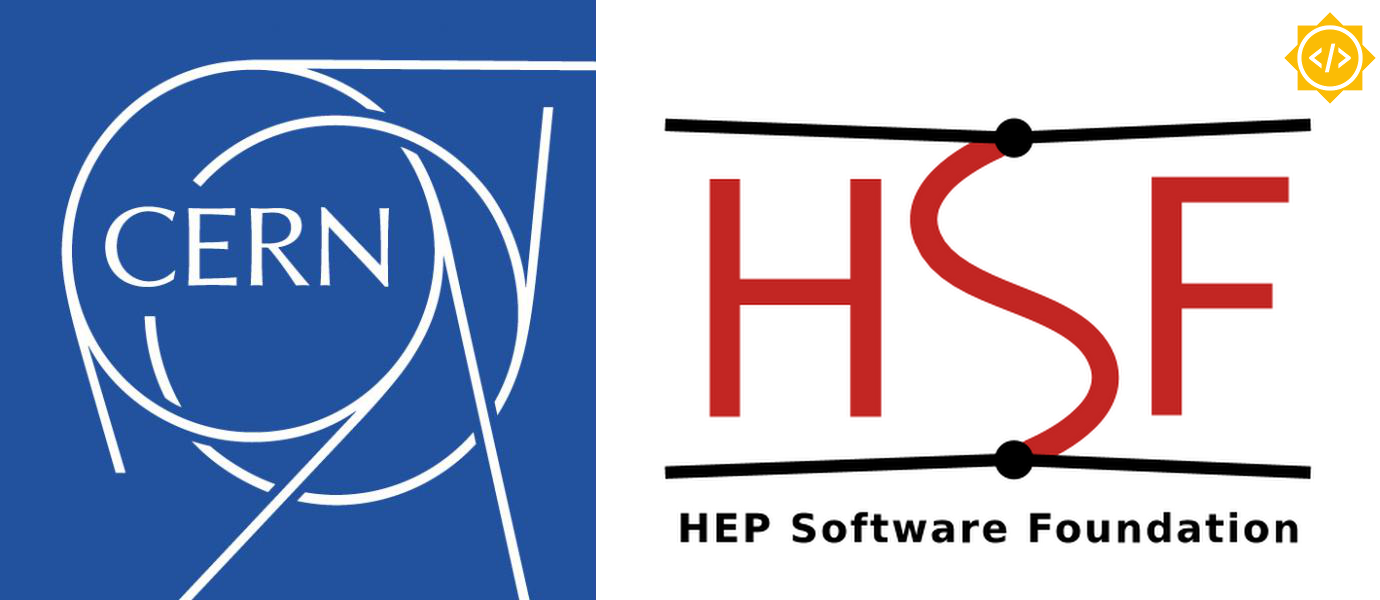 Google Summer of Code 2022
Google Summer of Code 2022
Introduction
Google Summer of Code is a program that allows students to contribute to the development of open-source projects, mentored by participating organizations.
Particle physics is an exciting field where large collaborations of scientists collect and analyze petabytes of data from high-energy physics experiments, such as those at the Large Hadron Collider, hosted at the CERN laboratory in Geneva, Switzerland. Some of the questions that we collectively ask are:
- what are the fundamental blocks that make up our Universe?
- what is the nature of dark matter and dark energy?
- what is the nature of the asymmetry between matter and antimatter?
- what was early Universe like?
To answer these questions, particle physicists build software to simulate and analyze what happens in particle physics detectors.
The CERN software for experiments (CERN EP-SFT) group has participated in the GSoC since 2011. Since 2017 the program has expanded to involve the high-energy physics community under the umbrella of the HEP Software Foundation.
Information from last year’s GSoC can be found here.
GSoC 2022
In 2022 HSF is participating in the program as a GSoC umbrella organization, under the name CERN-HSF. The HSF project ideas are listed below. There are important changes in the program rules and the timeline compared to the previous year, described in this news blog. Most notably, there are now both 175 hours and 350 hours projects. The maximum duration of projects was now extended to 22 weeks, which gives some more flexibility on the scheduling of work.
The selection process in our organization will be split into two phases. All candidates will have to pass pre-selection evaluation tests prepared by mentors, demonstrating the skills needed for the respective projects. The successful candidates will have a detailed exchange with mentors on a given project idea, and their proposals are then evaluated for the final student selection. The detailed timeline of these phases is shown below.
For Students
If you are interested in the HSF projects, please start by having a look at our guidelines for students.
New projects for HSF GSoC in 2022 will be published by February 21. Meanwhile you can take a look at last year’s HSF GSoC projects since many of those may also propose subjects this year. The student application period will begin on April 4, but discussions about student project ideas with mentors will take place starting on March 7, when the list of accepted Organizations is announced. You are encouraged to monitor this website in order to get acquainted with our projects and be prepared for contacting their mentors. Due to the high number of applicants for CERN-HSF projects, the application period procedure become more formal this year, so please try to follow our guidance.
Please avoid having the first contact with the mentors of HSF projects before March 7 or after April 4! You are encouraged to take the time to read our project proposals until March 7, focusing on only one or two projects that attract your interest. Once you have identified those, you should e-mail the respective mentors, attaching your CV and describing the motivation for your choice. The mentors will first propose an evaluation test, waiting for your solution. Note that the test you are given is private, your solution should be personal and the response time is part of the evaluation. Mentors will let you know the test results, and if you passed they will start discussing and helping you develop a project idea. The student application period is April 4 - April 19, when you will have to write and review your proposal with help from your mentors.
For further information, feel free to contact the HSF GSoC admins or join our open chat channel below. Note that the channel is intended for exchanging with the admins, the other candidates and some of the CERN-HSF students from previous year, and we do not maintain a mailing list for candidates. Please avoid posting extended information about yourself in the chat channel and reserve this for the direct exchange with the mentors.
hsf-gsoc-admin@googlegroups.com
Student pages
The CERN-HSF 2022 student blogs are now available. Check them out!
Student blogs are mandatory for receiving a positive evaluation in CERN-HSF starting with 2022 GSoC edition! If you are a CERN-HSF student, please read this blog.
For Projects and Mentors
Instructions for participating projects and mentors can be found here. The main differences compared to last year are that proposals have to be tuned for either 175-hour or 350h project length, and the target objectives must be well-defined deliverables.
We have a mentor-only Google group where we handle all announcements related to GSoC for our HSF Umbrella Organization. Please write us a mail to hsf-gsoc-admin@googlegroups.com if you want to add your preferred email to this list. Note that all participating mentors in 2022 HSF GSoC will have to be added to this group. Please let us know if for some reason your want your mail removed from this list.
For new HEP-related groups wishing to join HSF GSoC umbrella rather than being independent organizations: there is no formal procedure, you will just need to add a description and logo for your organization. Note that your project needs to have some connection with high-energy physics to join us. We need one contact person for each new group, so please write us an e-mail.
Timeline
| Jan 17 | Announcement of GSoC 2022 program in HSF |
| Jan 17 | Call for 2022 HSF GSoC projects and mentors |
| Jan 17 - Feb 21 | Mentors add project proposals available on the HSF GSoC website |
| Feb 21 | Deadline for CERN-HSF proposals |
| Mar 7 | Accepted Organizations announced by Google |
| Mar 7 - Apr 3 | Phase 1 selection Candidates have a first contact with project mentors. |
| Apr 4 | Mentors announce to students the result of phase 1 selection |
| Mar 20 - Apr 3 | Candidates discuss with mentors their project idea, timeline and objectives. |
| Apr 4 - Apr 12 | Mentors help candidates improving their proposals, proposals are submitted |
| Apr 19 | Student application deadline |
| Apr 19 - Apr 22 | Phase 2 selection Mentors evaluate and rank student proposals. |
| May 7 | Rankings due for mentors, sent to HSF Org Admins |
| May 7 - May 12 | Admins propose a range of slots to be asked, amended by the HSF committee. |
| May 12 | Student slot requests due for Org Admins |
| May 20 | Accepted student projects announced |
Projects in 2022
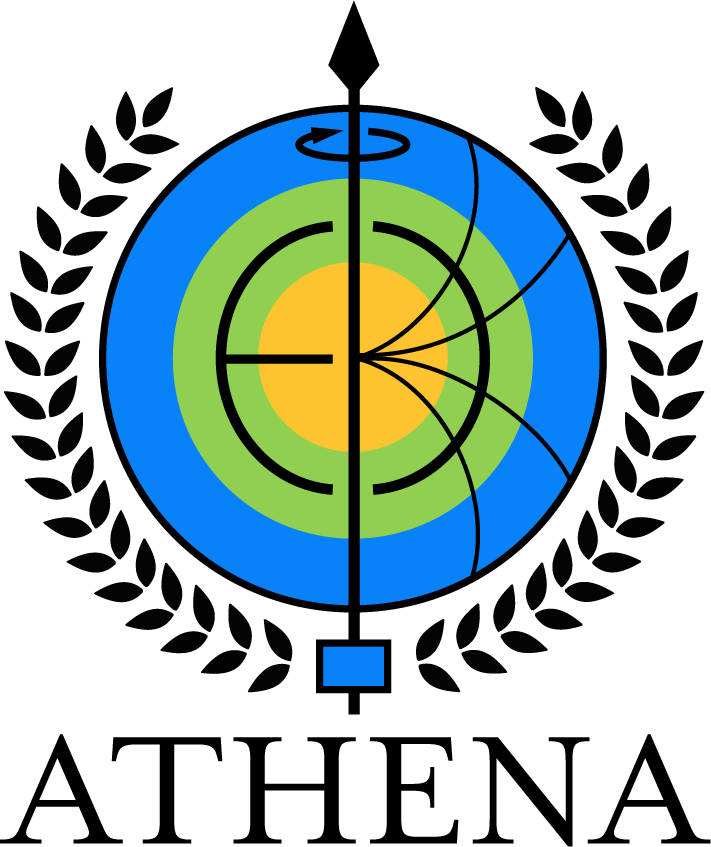 |
Based on widely-used community components (DD4hep, Gaudi, ACTS, EDM4hep) and in close collaboration with the key4HEP project, the ATHENA software environment is intended to be a general solution for all Electron-Ion Collider. |
List of proposals |
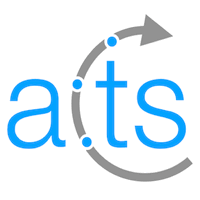 |
Acts is a free and open-source software project for track reconstruction in high-energy physics experiments. As a modernized version of the particle tracking code used by the ATLAS experiment at the Large Hadron Collider, the project is focused on adoption of modern C++ standards, usability in multi-threaded workflows, and increased use of vectorization and accelerators (gpgpu). |
List of proposals |
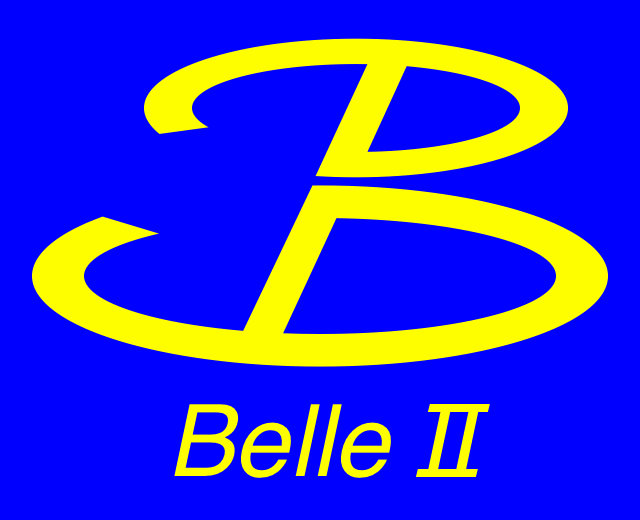 |
Belle II is a particle physics experiment that studies electron positron collision events produced by the the SuperKEKB accelerator at the KEK laboratory in Tsukuba, Japan. It is designed to collect 50 times more data than its predecessor to address open questions in fundamental physics with high precision measurements. |
List of proposals |
 |
CERNBox is a cloud synchronisation service for end-users: it allows syncing and sharing files on all major mobile and desktop platforms (Linux, Windows, MacOSX, Android, iOS) aiming to provide offline availability to any data stored in the CERN EOS infrastructure. |
List of proposals |
 |
The CernVM-File System (CVMFS) is a global, read-only POSIX file system that provides the universal namespace /cvmfs. It is based on content-addressable storage, Merkle trees, and HTTP data transport. CernVM-FS provides a mission critical infrastructure to small and large HEP collaborations. |
List of proposals |
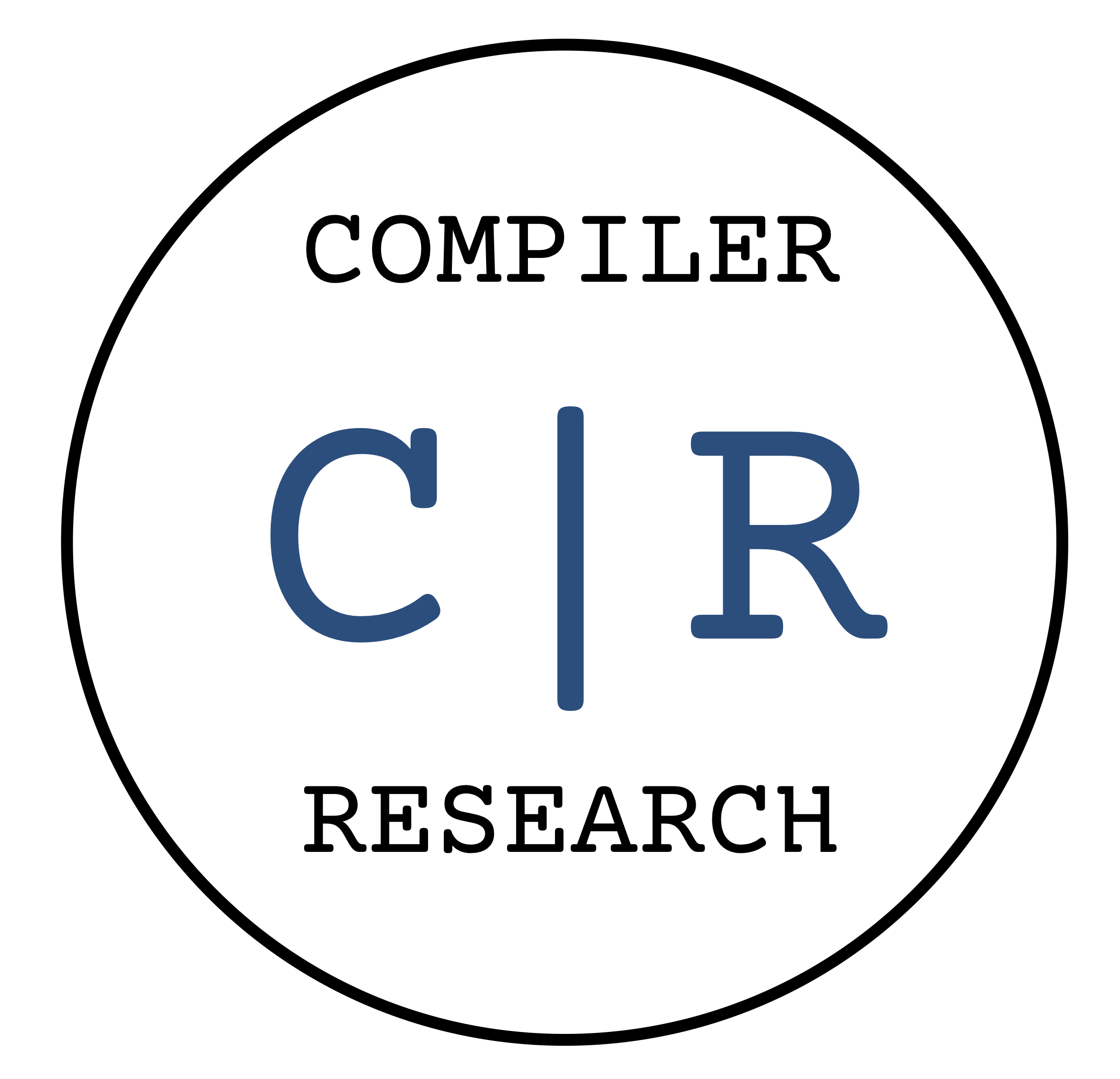 |
Compiler-Research - We are a group of programming languages enthusiasts located at Princeton University and CERN. Our primary goal is research into foundational software tools helping scientists to program for speed, interoperability, interactivity, flexibility, and reproducibility. Our current research focus is primarily in interpretative C/C++/CUDA, automatic differentiation tools, and C++ language interoperability with Python and D. |
List of proposals |
 |
The ESCAPE Open-source Scientific Software and Service Repository (OSSR) is an open-access repository to share scientific software and services to the science community and enable open science. It will house astro-particle-physics-related scientific software and services for data processing and analysis, as well as test data sets, documentation, tutorials, presentations and training activities. It will enable a true multi-messengerdata-driven cooperative approach based on the FAIR principles, guaranteeing an open innovation environment for science interoperability and software re-usage. |
List of proposals |
 |
Ganga is a computational task-management tool, which allows for the specification, submission, bookkeeping and post-processing of computational tasks on a wide set of distributed resources. Ganga has been developed to solve a problem increasingly common in scientific projects, which is that researchers must regularly switch between different processing systems, each with its own command set, to complete their computational tasks. Ganga provides a homogeneous environment for processing data on heterogeneous resources. |
List of proposals |
 |
Geant4 is a toolkit for the simulation of the passage of particles through matter. |
List of proposals |
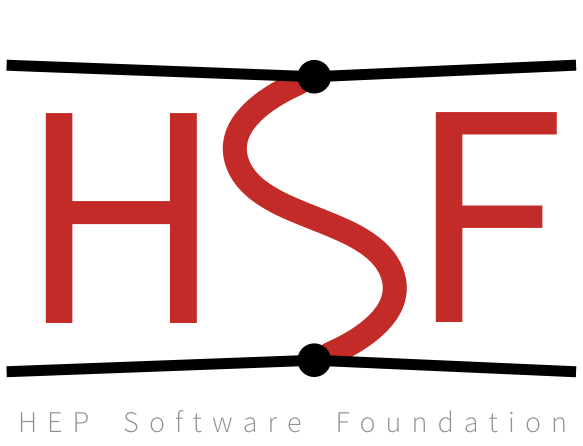 |
The HEP Software Foundation encourages cooperation and common development of software in High Energy Physics. The HSF hosts a number of software projects where developers are working to solve current problems in particle physics. |
List of proposals |
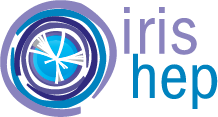 |
IRIS-HEP aims to develop the state-of-the-art software cyberinfrastructure required for the challenges of data intensive scientific research at the High Luminosity Large Hadron Collider (HL-LHC) at CERN, and other planned HEP experiments of the 2020’s. |
List of proposals |
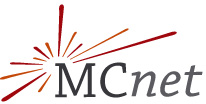 |
MCnet is a collaboration between the developers of the major collision-event modelling tools used at the Large Hadron Collider (LHC) and beyond. These codes are so-called “MC event generators”, theoretical physics packages that evaluate and sample from quantum mechanical distributions to create simulated particle collisions. MC generators are an essential component of both modern particle physics experiments and theory, and provide a crucial bridge between those two communities. MCnet projects include both event generators themselves, and tools that connect them to both experiment and theory. |
List of proposals |
 |
MadAnalysis 5 is a framework for phenomenological investigations at particle colliders. Based on a C++ kernel and Python based user interface, this program allows to efficiently perform, in a straightforward and user-friendly fashion, sophisticated physics analyses of event files such as those generated a large class of Monte Carlo event generators. |
List of proposals |
 |
Patatrack project started in 2016 by a group of people with various area of expertise, such as software optimization, heterogeneous computing, track reconstruction and High Level Trigger (HLT) at the CMS experiment at CERN. The goal was to demonstrate that part of the HLT reconstruction could be efficienty offloaded on machines equipped with GPUs for parallel execution. Nowadays, Patatrack developments have been integrated into the CMS software for event reconstruction and the project focuses on the exploration of innovative software and hardware technologies to bring smart software closer to the detectors read-out at CERN experiments. |
List of proposals |
 |
Phoenix is an experiment-agnostic library for the visualisation of detector geometry and event data in a browser. |
List of proposals |
 |
A modular scientific software framework. It provides all the functionalities needed to deal with big data processing, statistical analysis, visualisation and storage. It is mainly written in C++ but integrated with other languages such as Python and R. |
List of proposals |
 |
Rucio is an open-source software framework that provides functionality to scientific collaborations to organize, manage, monitor, and access their distributed data and dataflows across heterogeneous infrastructures. Rucio was originally developed to meet the requirements of the high-energy physics experiment ATLAS, and is continuously enhanced to support diverse scientific communities. |
List of proposals |
 |
A vectorized high-performance library usable for fast and accurate geometry computations in very complex setups. |
List of proposals |
Participating Organizations in 2022
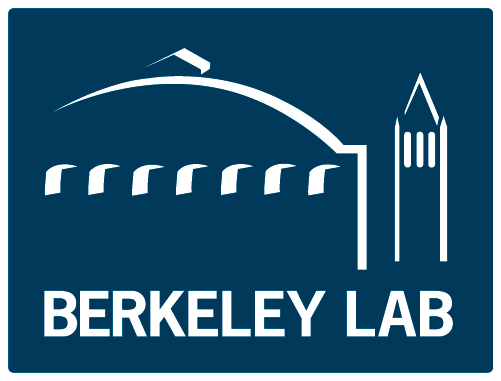 |
Lawrence Berkeley National Laboratory (LBNL), commonly referred to as Berkeley Lab, is a United States national laboratory that conducts scientific research on behalf of the Department of Energy. Located in the hills of Berkeley, California, the lab overlooks the campus of the University of California, Berkeley. |
List of proposals |
 |
Argonne National Lab (ANL) is a multidisciplinary science and engineering research center, where talented scientists and engineers work together to answer the biggest questions facing humanity, from how to obtain affordable clean energy to protecting ourselves and our environment. |
List of proposals |
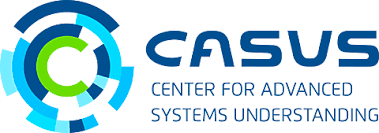 |
The Center for Advanced Systems Understanding, namely CASUS, is a joint German-Polish research institute where scientists combine methods from mathematics, systems theory, data science, and scientific computing at a single location, with the aim to rethink data-intensive systems research and develop digital solutions that are used across multiple disciplines. |
List of proposals |
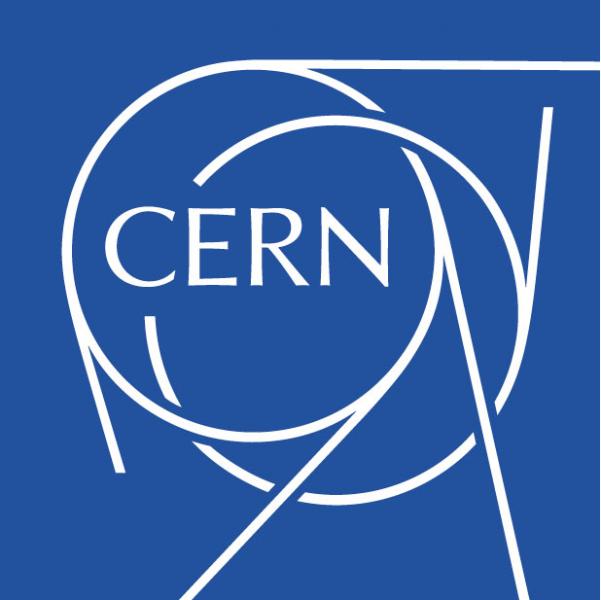 |
At CERN, the European Organization for Nuclear Research, physicists and engineers are probing the fundamental structure of the universe. They use the world’s largest and most complex scientific instruments to study the basic constituents of matter – the fundamental particles. |
List of proposals |
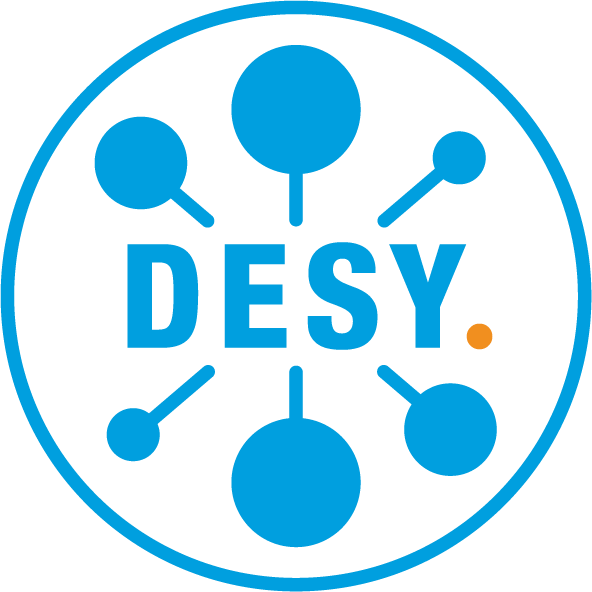 |
The Deutsches Elektronen-Synchrotron (DESY) is a major German physics laboratory with a long interest in high-energy physics. DESY is a major centre for photon science and the site of the European XFEL laser. DESY scientists are part of major international HEP experiments, such as ATLAS, CMS and Belle II. |
List of proposals |
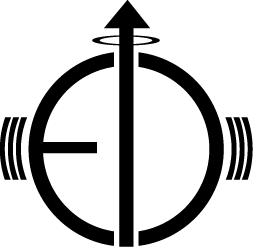 |
The Electron-Ion Collider (EIC) will be a particle accelerator that collides electrons with protons and nuclei to produce snapshots of those particles’ internal structure—like a CT scanner for atoms. The electron beam will reveal the arrangement of the quarks and gluons that make up the protons and neutrons of nuclei. The force that holds quarks together, carried by the gluons, is the strongest force in Nature. The EIC will allow us to study this “strong nuclear force” and the role of gluons in the matter within and all around us. |
List of proposals |
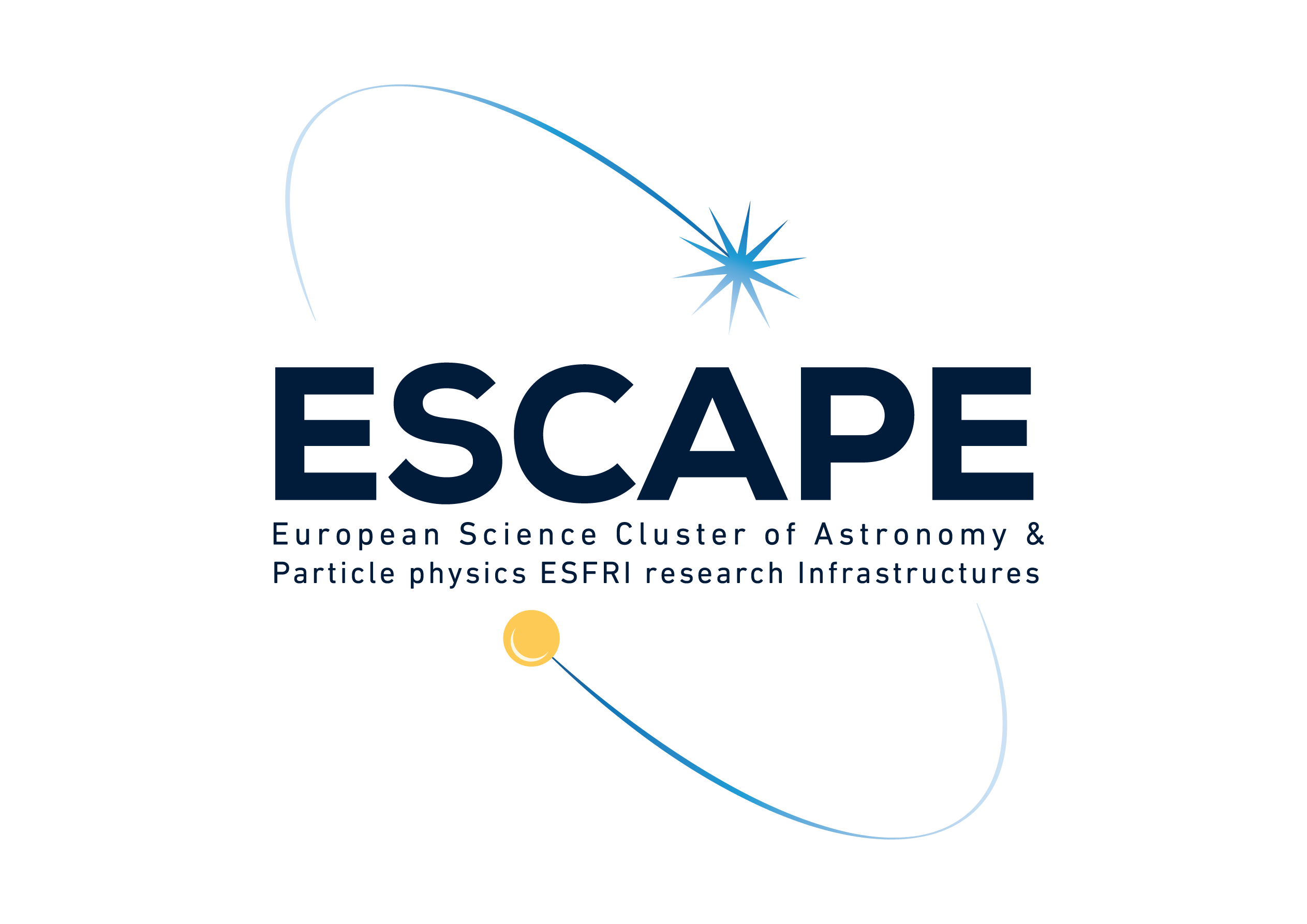 |
ESCAPE mission is to establish a single cluster of next generation European Strategy Forum on Research Infrastructures (ESFRI) facilities in the area of astronomy- and accelerator-based particle physics. The purpose of this open source and collaborative environment is to implement a functional link between the concerned ESFRI projects and European Open Science Cloud (EOSC). |
List of proposals |
 |
Fermi National Accelerator Laboratory (FNAL) is a Department of Energy national laboratory dedicated to particle physics research. Fermilab supports work by scientists, from across the country and the globe, who seek to further our understanding of matter, energy, space and time. |
List of proposals |
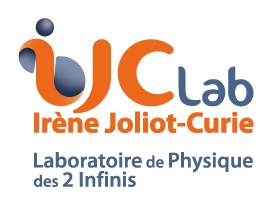 |
IJCLab is a French research laboratory belonging to CNRS/IN2P3 and located at Université Paris Saclay. The main topics of the research done at IJCLab are high energy physics, cosmology and accelerators. |
List of proposals |
 |
Imperial College London is a world top ten university with an international reputation for excellence in teaching and research. Consistently rated amongst the world’s best universities, Imperial is committed to developing the next generation of researchers, scientists and academics through collaboration across disciplines. Located in the heart of London, Imperial is a multidisciplinary space for education, research, translation and commercialisation, harnessing science and innovation to tackle global challenges. |
List of proposals |
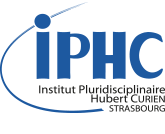 |
IPHC Founded in 2006, the IPHC (“Institut Pluridisciplinaire Hubert Curien” for “Hubert Curien Multidisciplinary Institute”) is an international renown laboratory located in Strasbourg (France). Its specificity is to gather three departments of different sciences: eco-physiology, chemistry and subatomic physics. The package MadAnalysis 5 was in particular designed in the latter department for the needs of phenomenology in particle physics at collider. The IPHC is a member institute of several international experimental collaborations such as CMS, ALICE, FCC, ILC, Juno, LIGO-Virgo, Antares-KM3NET, … |
List of proposals |
 |
The Institute for Particle Physics Phenomenology at Durham University is UK’s national centre for particle phenomenology, researching the properties and behaviour of the most fundamental building blocks of nature. Since it has founded, IPPP has grown to become one of the largest particle phenomenology groups in the world. Our research sits at the interface between theoretical particle physics and experiments ranging from particle colliders to gravitational wave detectors. |
List of proposals |
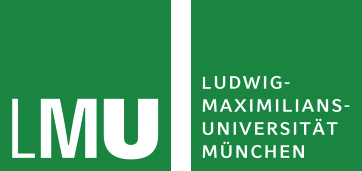 |
LMU The Ludwig Maximilians University in Munich is one of the leading universities in Europe with a history going back over 500 years. It stands for a demanding academic education and outstanding research. |
List of proposals |
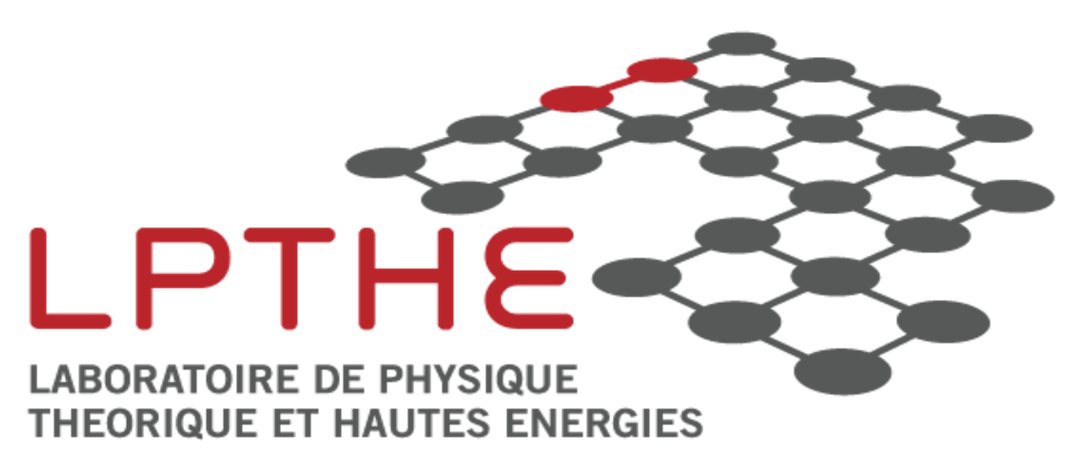 |
The Laboratory of Theoretical and High Energy Physics (LPTHE) is a Joint Research Unit (UMR 7589) of Sorbonne University and of the CNRS. It is affiliated with the CNRS Institute of Physics (INP). It comprises 19 CNRS researchers and 10 university professors. |
List of proposals |
 |
Monash University Monash University is one of Australia’s leading universities and ranks among the world’s top 100. We help change lives through research and education. |
List of proposals |
 |
ownCloud GmbH provides an open-source file sync, share and content collaboration software that lets teams work on data easily from anywhere, on any device. |
List of proposals |
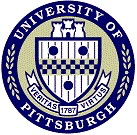 |
The University of Pittsburgh is one of the oldest institutions of higher education in the United States. |
List of proposals |
 |
Princeton University is a private Ivy League research university in Princeton, New Jersey. |
List of proposals |
 |
Research at RWTH Aachen University focuses on relevant problems arising from global challenges. The aim is to provide solutions for today’s complex and multi-faceted problems by developing an integrated interdisciplinary approach to research. |
List of proposals |
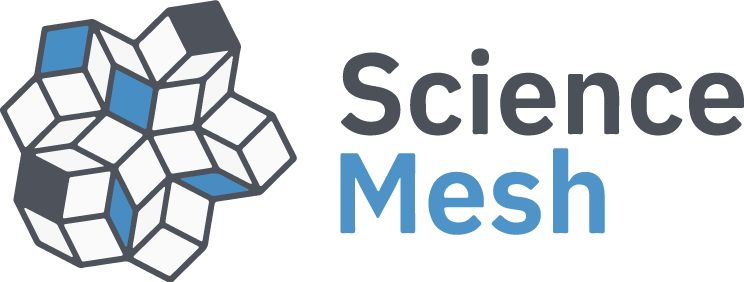 |
ScienceMesh is the Federated Science Cloud Mesh that connects existing and heterogeneous sites in a transparent way. It is a rich ecosystem for frictionless scientific collaboration and access to research services where data, applications, and computation are brought together. |
List of proposals |
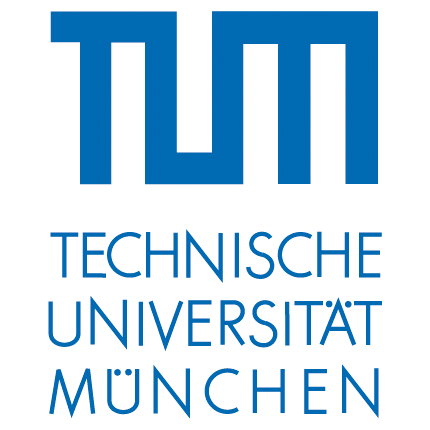 |
The Technical University of Munich (TUM) is one of Europe’s top universities. It is committed to excellence in research and teaching, interdisciplinary education and the active promotion of promising young scientists. The university also forges strong links with companies and scientific institutions across the world. TUM was one of the first universities in Germany to be named a University of Excellence. Moreover, TUM regularly ranks among the best European universities in international rankings. |
List of proposals |
 |
Founded in 1826 in the heart of London, University College London is London’s leading multidisciplinary university, with more than 13,000 staff and 42,000 students from 150 different countries. It is one of the UK’s leading groups in the field of particle physics. |
List of proposals |
 |
The University of Glasgow is a leading UK research university based in Scotland’s largest city. We work on particle physics experiments from the LHC to neutrinos, particle theory from interpretations of Higgs and top-quark measurements to the strong force, and high-performance distributed computing. |
List of proposals |
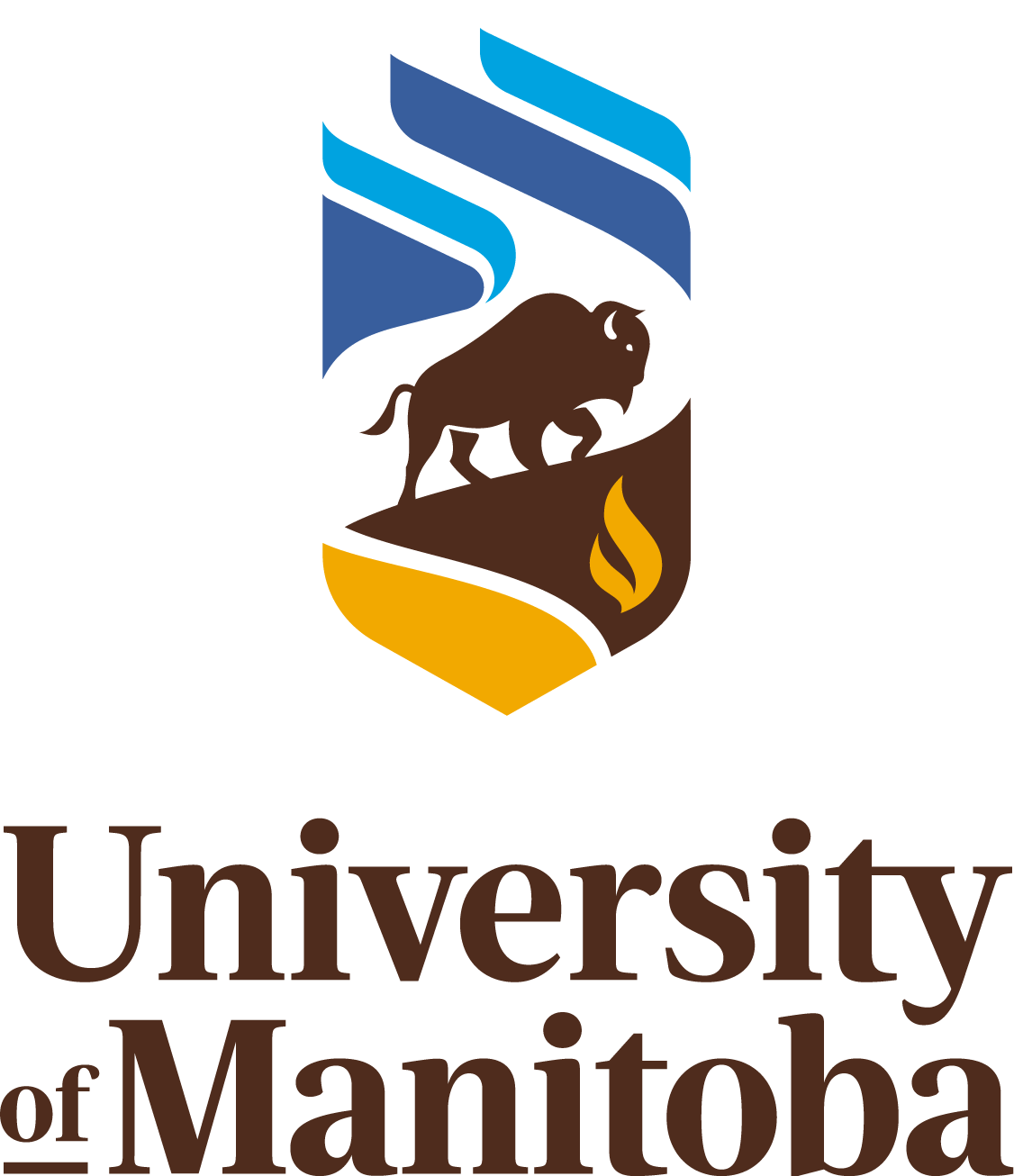 |
The University of Manitoba is a Canadian public research university in the province of Manitoba, located on original lands of Anishinaabeg, Cree, Oji-Cree, Dakota, and Dene peoples, and on the homeland of the Métis Nation. |
List of proposals |
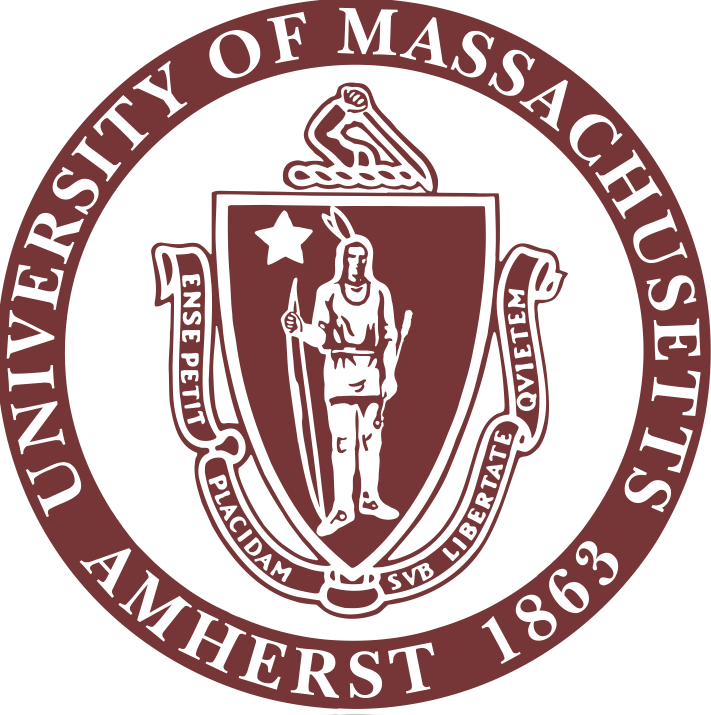 |
UMass Amherst is one of the major public research universities in America. |
List of proposals |
 |
With more than 45,700 students, the University of Münster is one of the largest universities in Germany. Thanks to its extensive range of degree programmes, multifaceted research profile, and the atmosphere and quality of life in Münster, the University attracts students and researchers from Germany and around the world. |
List of proposals |
Summary
Contacts
HSF GSoC mentor discussion e-group
HSF GSoC administrators: Andrei Gheata, Antoine Pérus and Benedikt Hegner